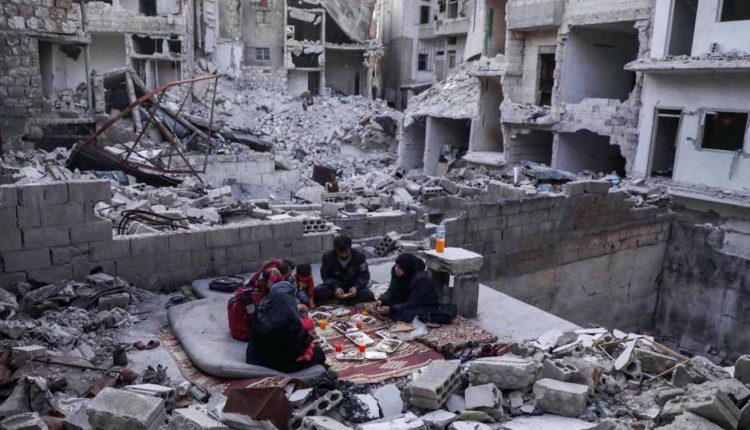Iran, Russia, China Denounce US Sanctions Targeting War-ravaged Syrian Economy
Iran, Russia and China have censured the US for imposing sweeping economic sanctions against Syria, which Washington says are designed to put more pressure on the war-ravage country’s economy and prevent Damascus from achieving victory in the fight against foreign-backed militants.
Speaking at a Security Council meeting on Tuesday, US Ambassador to the UN Kelly Craft said that the new restrictive measures would be slapped on Syria under the so-called Caesar Syria Civilian Protection Act.
The document — signed by US President Donald Trump last December — sanctions almost all Syrian economic and trade activities, as well as the country’s government officials.
The sanctions came into force on Wednesday.
Washington would implement the measures to “prevent the Assad regime from securing a military victory,” she said. “Our aim is to deprive the Assad regime of the revenue.”
Reacting to her comments at the same meeting, Russia’s US Representative Vasily Nebenzia — whose country is an ally of Damascus in its counter-terrorism battles —slammed Washington for openly confirming that “that the purpose of these measures is to overthrow the legitimate authorities of Syria.”
The US sanctions and those of the European Union, which were extended in May, not only cripple the Arab country’s economy but also hinder humanitarian assistance, he added.
In turn, China’s UN Ambassador Zhang Jun highlighted the inhumane nature of the bans targeting Syria’s economy, which is already severely weakened by years of foreign-sponsored militancy.
“As vulnerable countries like Syria are struggling with the (coronavirus) pandemic, imposing more sanctions is simply inhumane and may cause additional catastrophes,” the senior diplomat added.
Syria: Sanctions are other face of terror
Addressing the meeting via a video link, Syria’s UN Ambassador Bashar al-Ja’afari likewise said blockade and sanctions are part of “the western blind traditional polices and the other face of terrorism that shed the blood of the Syrians.”
Targeting the Syrian currency, livelihood, medicine and putting obstructions in front of the state institutions’ capability to meet their basic needs refute western claims of commitment to humanitarian principles, he noted.
US statements, he said, stress once again that the Washington administration “looks at the region through Israeli eyes.”
“When the United States steals 200 thousand barrels of oil from the Syrian oil fields daily, and 400 thousand tons of cotton, and sets fire to thousands of hectares of wheat fields, and boasts of dividing Syria and deliberately weakening the value of the Syrian pound, and when it imposes coercive economic measures…the legitimate question here is that: Are these the symptoms of political schizophrenia? Does that indicate an acute disease?” he asked.
Meanwhile, UN Special Envoy for Syria Geir Pedersen warned of an economic crisis unfolding in Syria under sanctions.
He did not directly criticize the US and its allies for the economic pressure, but said it is easy to understand the “new level of alarm at the dramatic collapse in economic conditions.”
Sanctions target government-affiliated individuals and entities “and also restrict activity in the financial, banking, oil and gas and military sectors as well as exports and multilateral lending to and investments in Syria,” he said.
Iran pledges support for Syrian economy
In an interview with Russia’s Sputnik news agency earlier on Tuesday, Iranian Foreign Minister Mohammad Javad Zarif also raised the alarm at Washington’s attempts to step up its economic pressure on Syria, saying the Americans are doing their best to destabilize region.
“We are concerned about certain political, economic developments in Syria, the attempts by the United States to impose further pressure, economic pressure … on Syria. It is taking toll on the Syrian people. We should make sure that the United States, [which] has done everything to destabilize our region and Syria, would not achieve its objectives,” Zarif said.
The top Iranian diplomat highlighted Tehran’s strong economic relations with Damascus, pledging that Iran and its friends will work to further broaden economic cooperation with Syria.
At the request of Damascus, Iran has been offering advisory military assistance to the Syrian government. Russia, too, has military advisers in the Arab state, besides carrying out aerial bombardments against militants.
Thanks to that support, the Damascus government has managed to win back control of almost all regions from Takfiri elements.
The government gains in Syria have enraged the US, which has long been collaborating with anti-Damascus militants and stealing Syria’s crude resources.

